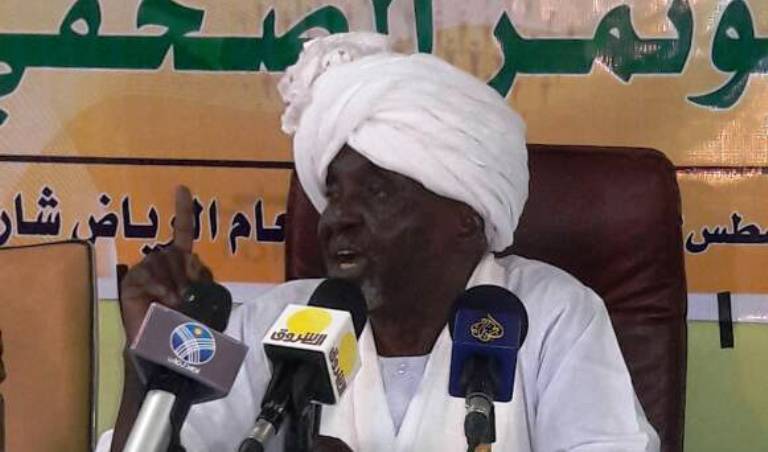PCP leader says warns against lack of consensus in Sudan’s government

August 26, 2017 (KHARTOUM) — Ali-al-Haj, the Secretary General of the Popular Congress Party ((PCP) said they are not consulted in the implementation of the national dialogue outcome, adding that many decisions are taken by the National Congress Party (NCP) without their knowledge.
The PCP is the main opposition party that supported the national dialogue process led by the ruling NCP after the withdrawal of several opposition parties that criticised the lack of freedoms in the country.
At the end of the process in October 2016, the participants endorsed the National Document which includes all the recommendations of the national dialogue in order to achieve peace and democratic reforms in Sudan.
Also, they agreed that these resolutions should be implemented through the consensus as a group decision-making, in order to ensure the national interests and to meet the concerns of all the participants, particularly the NCP has the majority in the parliament and can vote reforms alone.
In a press conference held more than a hundred days after the formation of the National Consensus Government, al-Haj said his party “was counting on the consensus in the decision-making process to avoid that decisions be finalised by a specific party as it appeared now”.
“Actually, there is no consensus. There are many things that we ignore. The criteria used to choose the government members were unilaterally decided by one party. We might be opposed to some but we accepted it. The appointment of the deputies to the prime minister we were not aware of it,” he said.
Further, he slammed the bad treatment of the PCP’s representatives in several regional parliaments including Khartoum State Legislative Council.
“If they think that the talk of one person is enough, this is not what we agreed upon, neither is it not the consensus or the dialogue,” he further said to express their frustration.
The PCP, which is a splinter party of the ruling party since 1999, believe that patience and long-term policy can produce positive reforms and better than joining armed groups to seeking violent change in the fragile country.
However, since several months, several leading members of the party started to express their frustration and disappointment questioning their participation in the transitional government, as many of them were initially opposed to such political involvement.
Recently, PCP Secretary General Kamal Omer, slammed the speaker of the Sudanese parliament Ibrahim Omer describing his performance in the management of the National Assembly as “very bad”.
Al-Haj apologised for the sharp criticism against the speaker, but at the same time said that the latter has not to “be biased” but fair and treat all the MPs on an equal basis.
“The (National) Assembly should not deal with us as defeated. We came to the dialogue with our heads held high, and we participated in the government with our heads held high,” he said.
We reject any treatment on the basis that they have the (parliamentary) majority. If things are decided on the majority basis (our) participation has no meaning,” he stressed.
Following an internal crisis in the NCP and the relief of the former First Vice President Ali Osman Taha who was known for his hostility for the PCP in 2013, many leaders in the PCP called to cooperate with the NCP in order to preserve the Islamic state in Sudan.
(ST)
